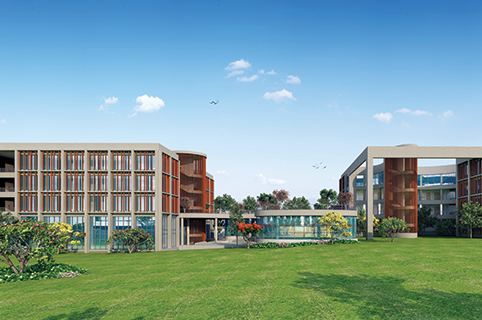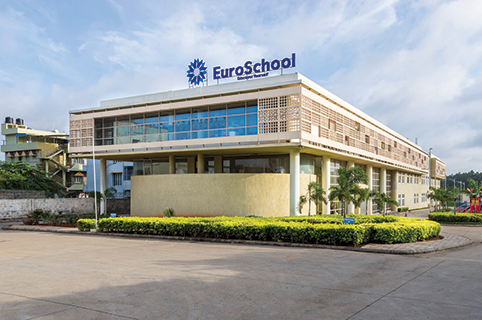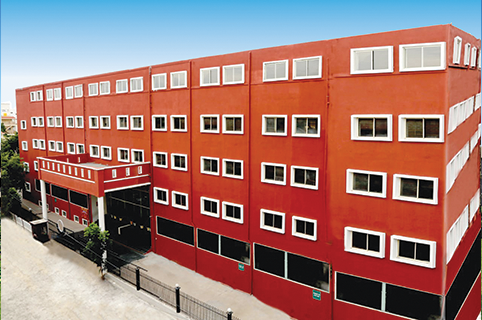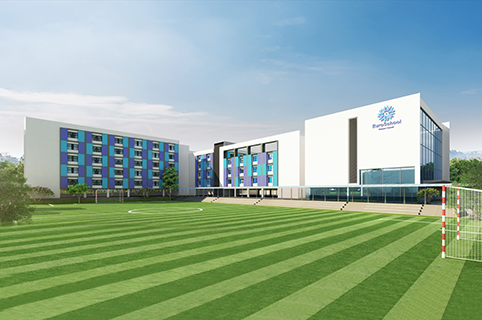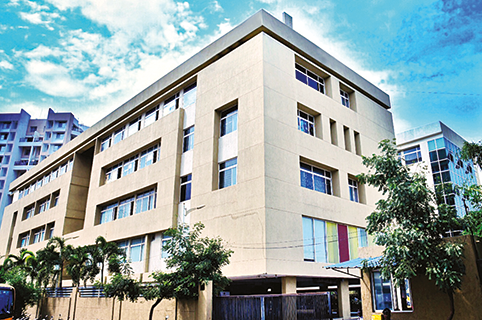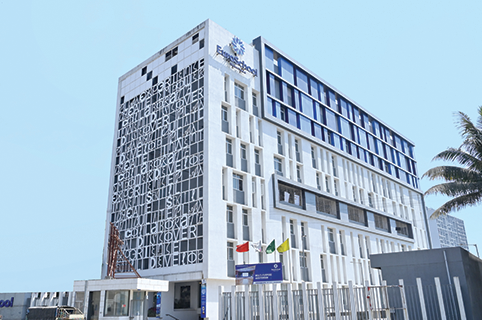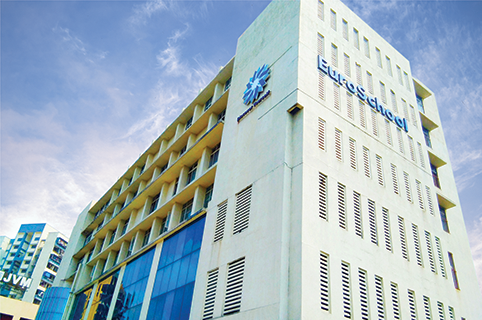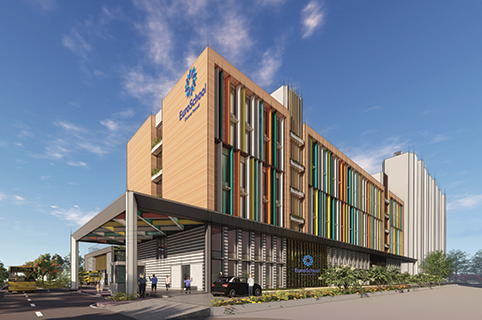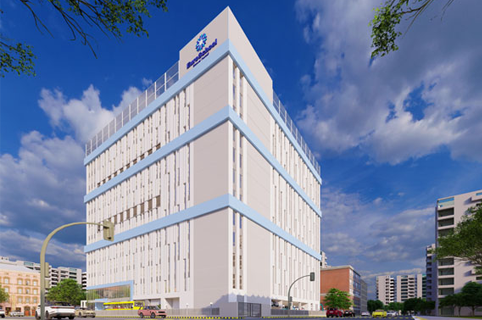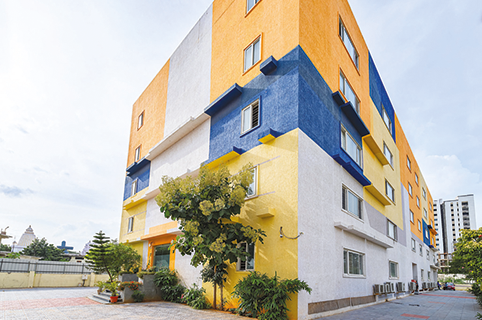Best Primary Schools In India
Choosing the right primary school for a child is a pivotal decision, as these formative years lay the foundation for their lifelong learning journey. Several factors should be considered to ensure the selected institution aligns with the child's needs and the family's values. First and foremost, the school's curriculum and teaching methodology matter. Parents should seek institutions that foster holistic development, promoting not just academic excellence but also personal, social, and emotional growth. An environment that encourages critical thinking, creativity, and curiosity can significantly shape a child's attitude towards learning.
Additionally, the qualifications and approachability of the teaching staff are crucial. Dedicated and well-trained teachers can make a profound difference in a child's educational experience. A low teacher-student ratio can further ensure personalised attention, enhancing the learning process. In essence, the best primary school should align with a child's individual needs while fostering an enduring love for learning.
ICSE & CBSE schools offering primary education in India
Primary Schools in Bangalore
Primary Schools in Pune
Primary Schools in Mumbai
Primary Schools in Hyderabad
Why Choose EuroSchool for Your Child?
EuroSchool is part of Lighthouse Learning, one of India's leading Early Childhood & K-12 Education Groups. Our Group is committed to building a robust foundation & new-age skills in future generations with student-centred goals that are aligned over our network of over 1,400 Pre-Schools and 52 Schools. Lighthouse Learning Group delivers the joy of learning to over 170,000 children every day and employs a talented workforce of over 10,000 people across its office and campuses located in Mumbai, Bengaluru, Pune, and Hyderabad.
Our education system is tailored to help children come out with flying colours. We also provide a variety of personal well-being programmes such as ARGUS, ASPIRE, Centre Of Wellbeing, Cerebrum and more that aim at fostering a safe space for growing children. EuroSchool offers education at all levels and with equal priority, starting with nursery admission and continuing through junior and senior kindergarten, primary, secondary, and higher secondary schools.
EuroSchool Primary School Curriculum
EuroSchool's primary curriculum integrates holistic development with engaging pedagogies, ensuring a balance of academics and character-building for young learners. The following provides a general overview of typical components found in a primary school curriculum:
- Languages - 1.)Primary Language: Focuses on developing skills in reading, writing, listening, and speaking. 2.)Secondary Language: Often introduced to promote multilingualism.
- Mathematics - Basic arithmetic: Addition, subtraction, multiplication, and division. Introduction to geometry, fractions, and basic problem-solving.
- Science - Basics of natural and physical sciences, including topics like plants, animals, weather, simple machines, and the human body.
- Social Studies - Introduction to history, geography, civics, and cultures. Students often learn about their local community, and country, and a basic overview of world geography.
Additionally, EuroSchool prioritises comprehensive personality development, fostering a dynamic learning environment that extends beyond academics. The curriculum integrates innovative teaching methodologies, emphasising critical thinking, creativity, and communication skills. Extracurricular activities, leadership programs, and community engagement contribute to building resilience, empathy, and a sense of responsibility. Through personalised guidance and mentorship, We ensure students develop self-awareness and a growth mindset, nurturing their emotional intelligence. The emphasis on values and ethics cultivates a strong moral compass. By instilling a global perspective, We prepare students not just academically, but socially and emotionally, equipping them for success in an interconnected and diverse world.
Primary School Admission Process in India
Here are certain factors you must think about before considering the top primary schools in India -
- Step 1 - Research and Selection: Research various schools in your vicinity. Make sure you check factors such as curriculum, faculty qualifications, infrastructure, fees, and past reputation.
- Step 2 - Acquisition of Admission Forms: Most schools release their admission forms between October and January. You can get it from the school's office directly or through their official websites.
- Step 3 - Submission: Fill out the form along with necessary documents like birth certificate, address proof, and photographs and submit it before the deadline.
- Step 4 - Interactive Session: Many schools conduct interactive sessions with parents and sometimes with the child. This isn't an interview but a casual interaction to understand the child's background and ensure a smooth transition for the child.
- Step 5 - Admission Criteria: While some schools have a first-come-first-serve policy, others might give preference based on the vicinity of the school, sibling priority, or alumni parents.
- Step 6 - Announcement of Selected Candidates: Schools usually release the list of selected candidates a few weeks after form submissions. This could be displayed on the school's notice board or their website.
- Step 7 - Payment of Fees: Once selected, parents are required to pay the admission fee and other charges within a specified period to secure the child's spot.
- Step 8 - Orientation: Post-admission, schools often organise orientation sessions for parents and students to acquaint them with the school's environment, ethos, and practices.
EuroSchool Admissions Now Open. Enrol Today for World-Class Education.
Objective & Importance of Primary Education
Primary education is the foundational step in the academic journey of a child, laying the groundwork for all subsеquеnt lеarning. Its main objective is to ensure the holistic dеvеlopmеnt of children by instilling basic literacy, numеracy skills, and cognitivе abilitiеs. Bеyond thе acquisition of fundamеntal knowledge, primary еducation also еmphasisеs moral and social values, aiding children in becoming responsible and active citizens.
The importance of primary education cannot be overstated. It еquips children with critical thinking abilitiеs, enabling them to differentiate between right and wrong, fostеring curiosity and a love for learning. Primary еducation also plays a pivotal role in rеducing inеqualitiеs, as it еnsurеs that еvеry child, irrespective of background, has a fair chancе at a brightеr futurе. In еssеncе, it is the cornerstone upon which thе еdifice of lifelong learning and personal dеvеlopmеnt is built.
FAQs about Primary Schools in India
What age group does primary education in India cater to?
In India, primary education generally caters to children aged 6 to 10 years. This encompasses classes 1 to 5.
What is the medium of instruction in Indian primary schools?
The medium of instruction varies across schools. While many schools use regional languages as the medium, others may use Hindi or English, especially in urban areas and private institutions.
How is the quality of government-run primary schools in India?
The quality can vary significantly. While some government-run schools offer excellent education, others may face challenges such as inadequate infrastructure, lack of resources, and under-trained teachers. However, initiatives like the Sarva Shiksha Abhiyan aim to improve the quality and reach of primary education in the country.
How are children with special needs accommodated?
Many primary schools, especially in urban areas, are now making efforts to be inclusive. They offer facilities and trained educators to cater to children with special needs. The government also encourages inclusive education through various policies and schemes.
How do Indian primary schools approach holistic development?
Most schools in India recognise the importance of holistic development. Apart from academics, they emphasise co-curricular activities like sports, arts, and cultural events to foster overall growth.
What is the teacher-student ratio in Indian primary schools?
As per the RTE Act, the desired teacher-student ratio is 1:30. However, actual ratios can vary based on the location and resources of the school.
Are there private primary schools in India?
Yes, India boasts a large number of private primary schools. These institutions often have better resources, and infrastructure, and sometimes offer international curriculums.


